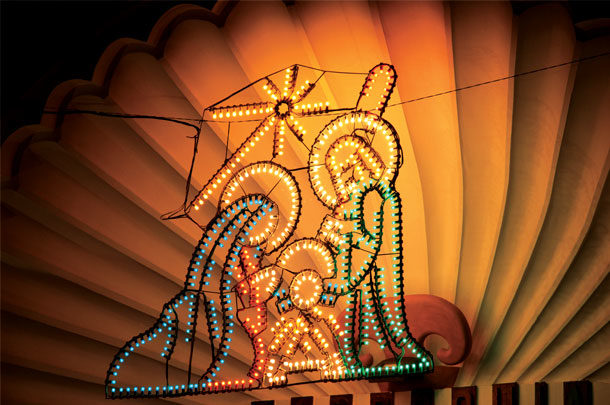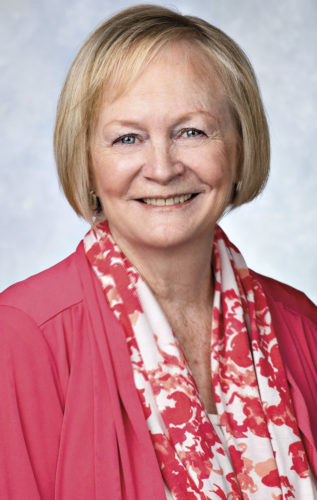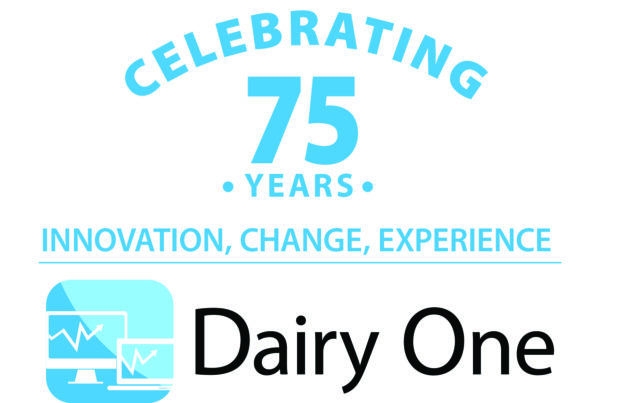George was a banker, and he didn’t have a lot of family – just a brother and his family who lived an hour away. George was used to living by himself – used to single-serving dinners, used to certain TV channels and shows, used to his routine. And that didn’t vary much. But he was content; it’s not like he felt sorry for himself or wished his life to be different. He enjoyed his work and spent long hours at the bank.
It was nearly Christmas, and there were the usual office parties and treats, pine garlands and poinsettias, trimming the bank’s tree, a little eggnog and customers who smiled more. George wished customers “Merry Christmas” several times a day as people came and went, hurrying on to finish their shopping.
George’s brother had invited George to come to Christmas Eve dinner with his family and spend Christmas Day with them; he was invited every year. His brother’s invitation was always sincere, but George rarely accepted. He didn’t like people feeling sorry for him, the kids were noisy, sometimes sticky, and their hugs made him feel a little awkward. It was just easier to stay home and watch something on TV. That’s why George was the one who usually stayed late to lock up the bank on Christmas Eve. He didn’t really have anywhere to be.
On this particular Christmas Eve, as George was closing up the bank alone, he walked into the vault to put away one last bag when, for some odd reason, the vault door quietly clicked shut behind him. He was trapped.
It wasn’t like George to panic, but he was stunned. How could this have happened? He’d worked in this bank for decades and had never had an issue with the vault. It was on a timer and, with anxiety rising, George realized the vault would not be opened again until the morning after Christmas – 36 hours away. And, sadly, George realized no one would come looking for him either. No one would miss him on this festive night – he wasn’t expected to show up anywhere.
It quickly became hot in the vault without air flow, and George for the first time wondered if there was enough air to last 36 hours. Could he survive? George groped in the dark, feeling only the smooth metal surfaces. His fingers fumbled around the door frame until, at the very bottom corner, he felt a small pinhole draft of cool air. George lay down on the floor, putting his face as close to the pinhole as he could to begin the long wait.
Thirty-six hours later, a bank employee opened the vault door, then turned and went to her desk to warm up her computer and settle in for the day. She greeted her co-workers with “How was your Christmas?” but she and her co-workers didn’t see George as he quietly exited the vault and slipped out of the bank, only to return showered, shaved and dressed in a fresh suit of clothes. But the man who exited the vault was not the same man who had entered the vault. George Mason was changed. In those long, dark hours, George Mason had made a promise to himself – a promise to “show up,” a promise to be part of people’s lives, a promise to contribute to his fellow men.
This story was brought to my mind as I attended a live nativity put on by the Clover Trinity Lutheran Church – a quaint little church in the middle of farm country in southern Idaho that abuts fields of alfalfa and a small cemetery. Amid a backdrop of straw bales, about 40 or so children transformed their mittens, snow pants and scarves (it was 28 degrees with additional wind chill) into a Bethlehem scene. With a miniature donkey in one corner and a fake campfire for shepherds in the other, they sang songs and recited lines to re-enact the Christmas story.
Of course, not everything was authentic, but their braces-filled smiles, their eyeglasses that slipped a little and their fidgeting with the props just enhanced the innocence of the scene.
I noticed people in the audience huddled near the propane heaters, sharing blankets on benches, trying to stay warm in their work boots and work gloves. Many of them didn’t have children or grandchildren in the play, but it didn’t matter – they showed up. They were part of the community. They had cattle to feed, equipment to repair, fence to fix, water troughs to unfreeze – but for a brief hour they showed up because this was their community, and that’s what communities do.
I’ve seen this played out at many community activities – Halloween trunk-or-treats, school plays, community concerts, church suppers, American Legion bingo night – where there are those folks who come for no apparent “reason,” or rather, no apparent “obligation.” Their purpose is just to support the lives of their fellow men. They’re a community.
They wave at each other passing on the road, put each others’ cows in when they’re out, loan each other equipment when the loader won’t start and snowplow driveway drifts so people can get to church and the grocery story. And when there are kids in the local live nativity, they show up to sing the carols, shake a few hands, sip some hot chocolate and make sure the heaters have enough propane. They show up.
That’s what the shepherds did. They could have stayed out of the city, where life and busyness felt a little strange to someone used to watching stars and hearing sheep bleat. But they showed up.
That’s what the wise men did. They could have kept their gifts, spared themselves the trip and avoided the wear of travel. They must have been tired. But they showed up.
I can do that and so can you. While we know it will be easier to stay home out of the cold, and Hallmark will never make a movie about us, let’s make a promise this year to our rural communities – let’s promise to just “show up.” ![]()
PHOTO: Nativity. Getty Images.

-
Lynn Jaynes
- Editor
- Progressive Dairy
- Email Lynn Jaynes












